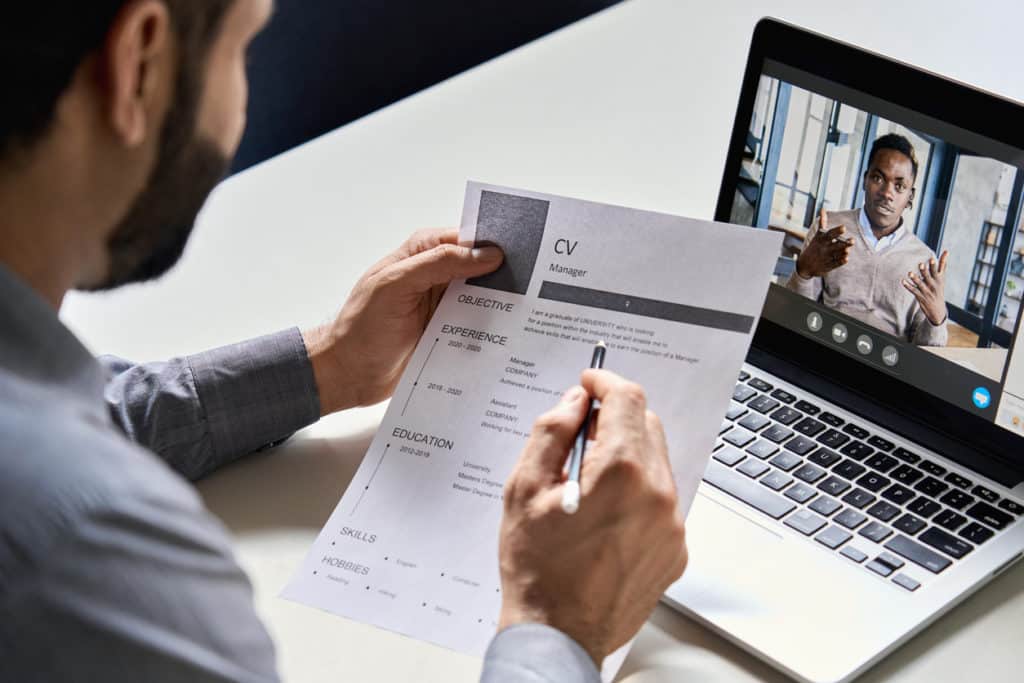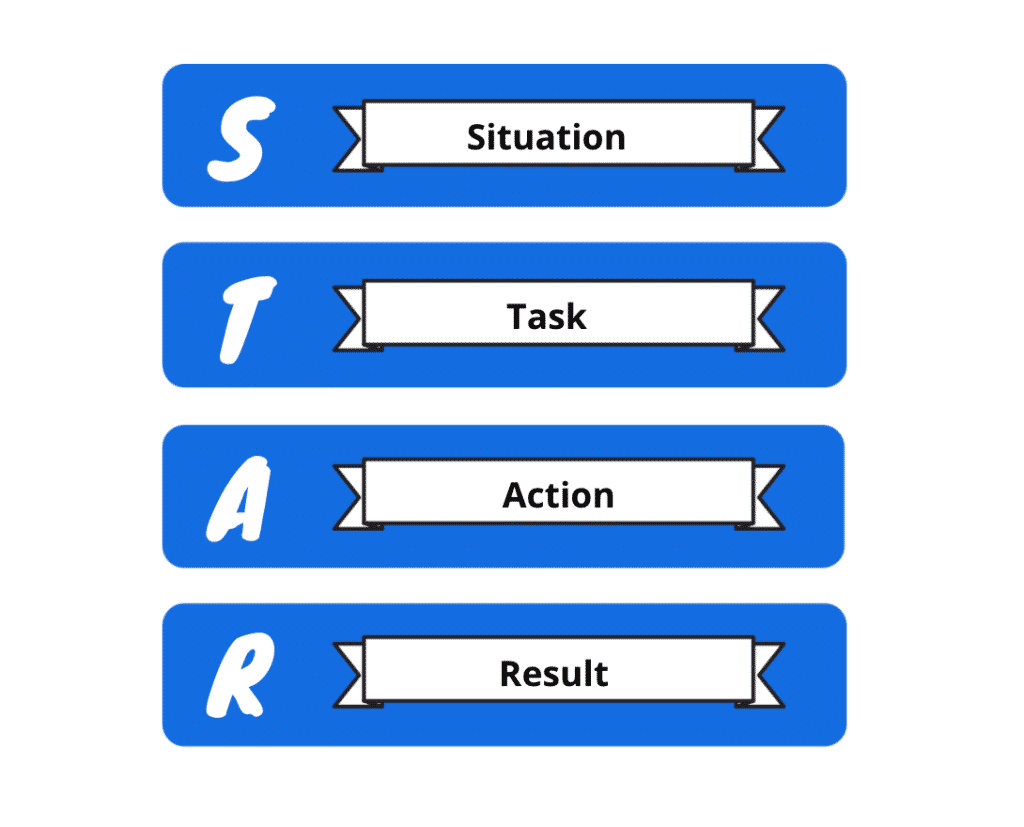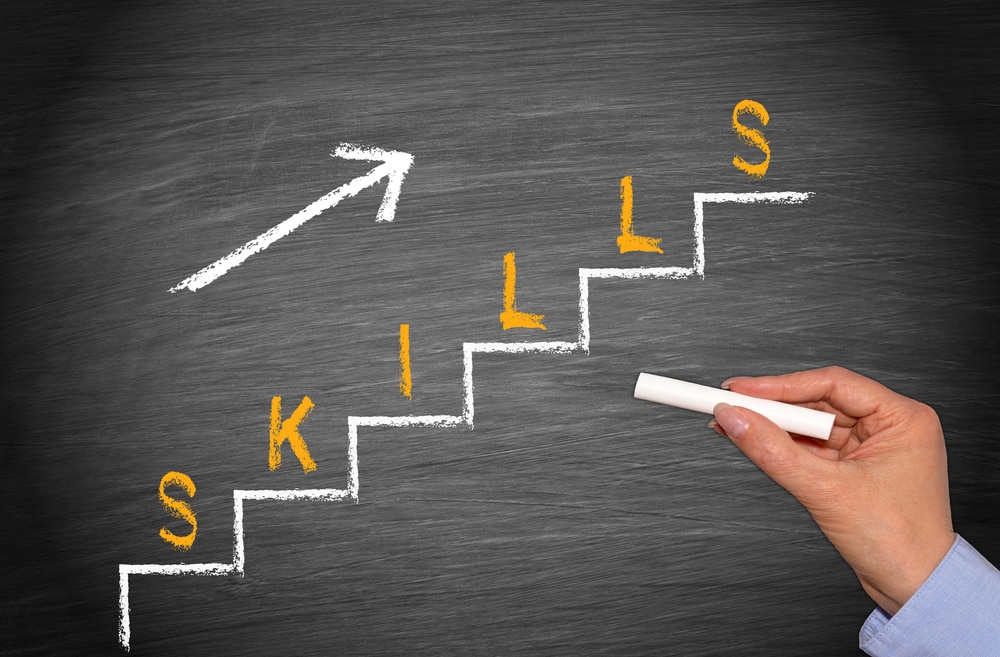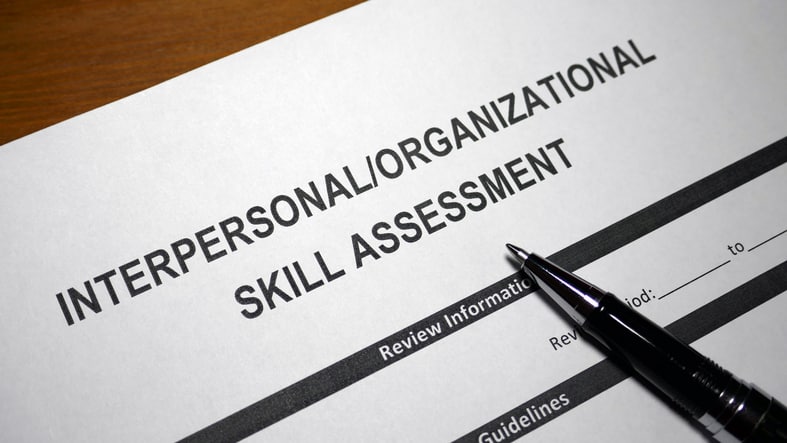A mock interview is a practice interview that is a clone of an actual job interview. It allows job seekers an opportunity to practice for an interview and get feedback on their interviewing skills. Mock interview is an ideal way to practice for actual job interviews because you are in a situation that mirrors an actual interview with a company. Here's what you need to know about mock interviews and how they can help you prepare for job interviews.
- What is a mock interview?
- What are the benefits of mock interviews?
- Types of mock interview
- Examples of mock interview questions
- How to prepare for a mock interview
- Summary
What is a mock interview?
A mock interview is a practice job interview conducted by a professional career counselor. A practice interview helps you analyze how to answer difficult questions, establish interview strategies, improve your communication skills, and lower your stress before you appear for an actual job interview.
Actual interviews take place in person, in groups, and over the phone, and a mock interview allows you to practice all of these circumstances. You'll be able to keep track of how you're doing and what you can do to improve your verbal and nonverbal communication.
What are the benefits of mock interviews?
Here are the key benefits of Mock Interviews:
- The main goal of a mock interview is to familiarize you with various interview situations and boost your self-confidence.
- Mock Interviews help reduce anxiety and stress that is caused during interview process. You will be less nervous during the actual interview as a result.
- Mock interviews will also help you get more comfortable with frequent interview topics. You will be able to practice several versions of these questions' responses.
- It will help you with gaining constructive feedback in a less stressful environment.
- They help you prepare for behavioral-based interview questions.
Types of Mock Interviews
Several college career centers and career counselors offer mock interviews. If you are a college student or graduate, you can check with your career office to see if they provide in-person, phone, or mock video interviews.
If you're not connected with a college or university, a career coach is the best option for a mock interview.
You can book an appointment with a mock interviewer and provide them with information on either a specific company you are interviewing for or your general career field. This will help them create mock interview questions similar to those you will eventually encounter in your actual interviews.
Some career centers and counselors also offer mock phone and online video interviews and record your interview with a webcam.
After the mock interview which usually lasts about 30 minutes, the interviewer will review the interview with you and provide feedback.
Examples of Mock Interview Questions
The questions asked during a first round mock interview are basically the more general employer interview questions.
When you plan a mock interview or practice interview with your college career center, provide them with information regarding your goals and interests. The more information the counselor has, the better he will be able to come up with questions to fit the actual interviews you will have.
Job-Specific Interview Questions
Job-specific interview questions may be asked for candidates who know what type of position, career field, or industry they are interested in.
For example, if you are in search for a technical job, the interviewer can ask a series of technical interview questions to make you familiar or comfortable with the types of questions that will be asked in your actual interview.
Company-Specific Interview Questions
If you are planning to take up a mock interview to prepare for a job interview that you have scheduled with a company, the interviewer may ask you actual questions asked by hiring managers at the company.
How to prepare for a mock interview
A mock interview should be treated with the same seriousness as a genuine one. These tips may be useful:
- Practice with the right mock interviewer
- Interview with multiple people
- Recreate the interview setting
- Research the company before the interview
- Dress well for the interview
- Have your Curriculum Vitae and other materials at hand
- Practice using the STAR method
- Record the mock interview
- Review your recording
- Be Early
1. Practice with the right mock interviewer
It is preferable if the person conducting the mock interview is from your profession since this will allow them to ask you probing and career-specific questions without conducting extensive research. They'll be able to provide you an accurate review of your interview performance and tell you whether or not you'll be considered for the job. You hone your skills.
You can seek assistance from an experienced and senior professional, or you can look into online and offline employment portals to see whether they offer mock interviews. You can also enlist the support of relatives and friends to practice.

2. Interview with multiple people
If you have the chance, conduct mock interviews with a variety of people. This will help you prepare for genuine interviews in which you will have to interact with and respond to a variety of interviewers. When confronting a panel of interviewers or dealing with different personalities one-on-one, you'll learn how to be calm and composed. The many interviewers will provide you with feedback on how well you performed in the mock interview, as well as hints and guidance on how to improve. It's a good idea to practice interviewing until you're pretty convinced that you'll do well in the real thing.
3. Recreate the interview setting
You'll get the most out of a mock interview if it's as similar to the real thing as possible, whether it's in person, over the phone, or video. The goal is to feel at ease in the interview situation so that you are not nervous or self-conscious and can focus entirely on having a professional conversation with the interviewer.
For In-Person Mock Interview:
- You and the interviewer would be facing each other across a desk or table during an actual in-person interview. Your CV would be on the table in front of you.
- To speak with the interviewer, you can either lean back in your chair or lean forward. So, during the mock interview, try to recreate that circumstance and ask the interviewer to assess your body language.
- Determine whether you come across as awkward or at ease and what you can do to appear more confident without appearing to be trying.
For a Virtual Mock Interview:
- Make sure you have a clear phone connection and a fully charged mobile for a phone interview. You should also be in a location with little to no external distractions. Because phone interviews are scheduled at specific times, you should be prepared to pick up the phone when it rings.
- Speak clearly and authoritatively.
- When you greet the interviewer, smile, even if they can't see you, it will improve the tone of your voice.
4. Research the company before the interview
'What do you know about our company?' is one of the most often asked questions during job interviews. It will assist if you are well-prepared and have a thoughtful response. You should extensively research both the firm and the position for which you are interviewing. Take a look at the company's website, mission statement, and blog. Examine their social media activities and any company-related news items.
Spend some time thinking about how the company's ideals align with yours and what you believe you can contribute to the role. Prepare a few talking points and practice delivering them with confidence. You need to persuade the interviewer that you have what it takes to succeed in the role.

5. Dress well for the interview
If you dress appropriately for the occasion, you might make a good first impression on the interviewer. You should dress comfortably to feel at ease during the interview. This holds for both in-person and video interviews. Dressing up for a phone interview can also help you to feel more professional.
Your interviewer can give you feedback on how professional your dress is, how you appear, and whether you need to make any changes after the mock interview.
6. Have your Curriculum Vitae and other materials at hand
The interviewers will expect you to bring your CV, a work portfolio, and other necessary documents to a genuine interview. Make it a point to do the same in a practice interview. Bring whatever you think you'll need to give the interviewer information about yourself and your abilities.
When you go to a genuine interview, the mock interviewer will tell you if you came well-prepared or need to bring more resources.
Check out these tips to write a resume that employers really want. You can also check out this session on Resume Building from scratch.
7. Practice using the STAR method

The STAR approach involves framing interview responses according to the context, task, action, and outcome. To produce such well-considered comments, you'll need to take your time. You will be able to impress the interviewer with your logical thought processes, in addition to offering evidence of your talents and abilities.
You should practice using the STAR approach until it comes naturally to respond to questions in this thoughtful manner. While skills are important, most employers also seek self-aware and capable of in-depth thinking and analysis. If you can present yourself like such, you will have a better chance of landing a job.
8. Record the mock interview
While the mock interviewer's feedback on your interview questions can be helpful, recording the mock interview and assessing your performance yourself can also be beneficial. While watching the recording, try to be as objective as possible. Keep a notepad handy to note down ideas.

9. Review your recording
It's also a good idea to pay attention to how you sound. Consider your tone, whether you're speaking too quickly, paying attention and not interrupting the interviewer, and whether you appear enthusiastic or overeager.
Make a list of the areas where you need to improve after you've listened to the tape. Rep the mock interviews until you can cover your flaws relatively well. It will take some time, but it will boost your self-esteem and be well worth the effort.
When practicing mock interviews, think of them as a two-way dialogue to get to know each other. Keep in mind that you should be evaluating the company at the same time as they are evaluating you. Prepare a list of pertinent questions to ask about the position's daily responsibilities and the company's culture. They should meet your requirements for having a nice work environment, just as you want to meet their criteria for the employment role. You'll be more likely to pass the real job interview and be hired if you keep that mindset and practice mock interviews frequently.
10. Be early
Arrive 15-30 minutes early for the interview.
Prepare but don't memorize your responses to frequent interview questions. You don't want to come across as a robot by using canned responses. Keep in mind that you're attending an interview not to take a test but to have a conversation with the interviewer to see if you're a good fit for the job.
Summary
A mock interview is an excellent approach to prepare for a real job interview. It offers you an idea of what you need to do and establishes your goals. You should practice so that you can see where you can improve. You'll be well-prepared for the real job interview by the time it arrives. You can also head over to Great Learning Academy and take up various free online courses that will help you prepare well. Some of the courses offered are:
Interview Etiquette & Power dressing
How to Prepare for an Interview?
Smart English Basics for Professionals
Happy Learning!






